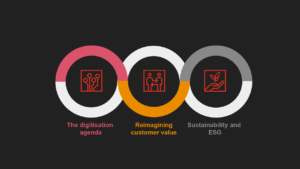The Impact of Climate Change on Insurance Policies and Premiums is a pressing topic that has sparked varied discussions among industry professionals and consumers alike. As environmental shifts continue to reshape our planet, they also bring about significant changes in how insurance companies assess risks, set premiums, and develop policies. Understanding this evolving landscape is essential for both insurers and policyholders, as it influences not only the cost of coverage but also the availability of certain types of insurance.
Climate change poses challenges that require insurers to adapt their strategies to account for increased frequency and severity of natural disasters. This transition impacts everything from policy conditions to premium rates, making it crucial for all stakeholders to stay informed about these developments. By delving into how climate factors intertwine with the insurance realm, we can better grasp the implications for future coverage and the financial security of individuals and businesses.
In an age where technology continuously reshapes our world, the importance of effective communication remains a cornerstone of human interaction. Whether it’s in our personal relationships or professional endeavors, the way we convey our thoughts and ideas can significantly impact outcomes. In this article, we’ll explore the essential elements of effective communication, the role of technology in this process, and practical tips on how to enhance your communication skills.To begin with, let’s delve into the essence of communication.
At its core, communication is about sharing information, emotions, and ideas between individuals. It involves a sender, a message, a medium, and a receiver. Effective communication occurs when the receiver accurately interprets the message the sender intended to convey. This seemingly simple process can become complicated due to various factors, including language barriers, cultural differences, and even the medium used for communication.One of the most important elements of effective communication is clarity.
When expressing thoughts, being clear and concise helps prevent misunderstandings. It’s essential to choose your words carefully, ensuring that they convey the intended meaning without ambiguity. For example, when sending an email, using straightforward language and avoiding jargon can make your message more accessible to the recipient. Similarly, in face-to-face conversations, articulating your ideas clearly can lead to more productive discussions.Active listening is another crucial component of effective communication.
It involves fully concentrating on what the speaker is saying rather than merely waiting for your turn to respond. Active listening fosters a deeper understanding of the speaker’s perspective and encourages open dialogue. Techniques such as nodding, maintaining eye contact, and providing verbal affirmations can show the speaker that you are engaged and valuing their input. By practicing active listening, you create an environment where both parties feel heard and respected.In today’s digital age, technology plays a significant role in communication.

With the rise of emails, instant messaging, and video conferencing, the way we connect with others has evolved dramatically. While these tools offer convenience and speed, they can also lead to miscommunications if not used thoughtfully. For instance, tone and body language are often lost in written communication, making it easier for messages to be misinterpreted. To mitigate this, it’s vital to be mindful of your language and consider how your message may be perceived by the receiver.Furthermore, technology can enhance communication by providing various platforms for collaboration.
Tools like Slack, Zoom, and Microsoft Teams enable teams to work together seamlessly, regardless of their geographical locations. These platforms offer features such as file sharing, real-time messaging, and video calls, promoting a more interactive and engaging communication experience. However, it’s important to strike a balance between leveraging technology and maintaining personal connections. Face-to-face interactions, when possible, foster stronger relationships and help build trust among team members.Cultural awareness is another key aspect of effective communication.
In our increasingly globalized world, we often interact with individuals from diverse backgrounds. Recognizing and respecting cultural differences is vital to avoid misunderstandings. For instance, gestures that are considered polite in one culture may be offensive in another. Taking the time to learn about the customs and communication styles of others can greatly enhance your ability to connect with them.Moreover, nonverbal communication is a powerful tool that often speaks louder than words.
Body language, facial expressions, and gestures can significantly influence how your message is received. For example, maintaining an open posture and using appropriate eye contact can convey confidence and engagement. Conversely, crossing your arms or avoiding eye contact may signal disinterest or defensiveness. Being aware of your nonverbal cues and interpreting those of others can lead to more meaningful interactions.To enhance your communication skills further, consider the following practical tips:
1. Practice Empathy
Try to put yourself in the other person’s shoes. Understanding their feelings and perspectives can help you tailor your message appropriately and respond more effectively.
2. Ask Questions
Asking clarifying questions demonstrates your interest in the conversation and helps ensure that you understand the other person’s point of view. It also provides an opportunity for deeper discussion.
3. Be Open to Feedback
Encourage others to share their thoughts about your communication style. Constructive criticism can highlight areas for improvement and help you become a more effective communicator.
4. Stay Calm
In high-pressure situations, emotions can run high, leading to impulsive reactions. Take a moment to breathe and collect your thoughts before responding.
5. Utilize Technology Wisely
Embrace the tools available to you, but remember that they should enhance, not replace, personal interactions. Whenever possible, opt for face-to-face conversations or video calls for important discussions.
6. Tailor Your Message
Different audiences may require different approaches. Adjust your communication style based on the recipient’s preferences, level of understanding, and cultural background.
7. Stay Positive
A positive tone can help create a more open and collaborative atmosphere. Use encouraging language and express appreciation for others’ contributions.In conclusion, effective communication is an essential skill that influences every aspect of our lives. By prioritizing clarity, active listening, and cultural awareness, we can foster deeper connections and achieve better outcomes in our personal and professional relationships. As we navigate the complexities of modern communication, let us remember that while technology can facilitate our interactions, the human touch remains irreplaceable.
By honing our communication skills, we can build bridges, create understanding, and ultimately enrich our lives and the lives of those around us.




